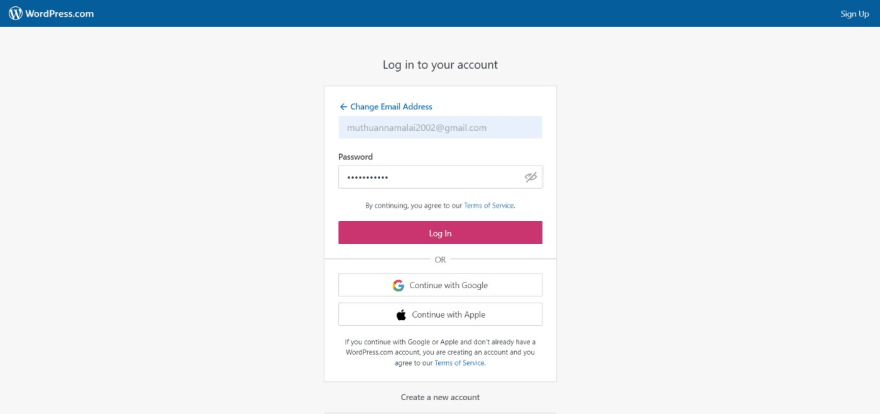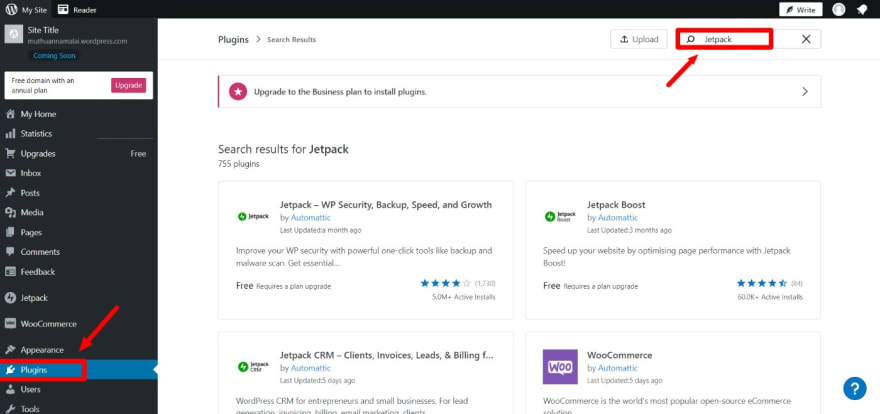Jetpack is advertised as an all-in-one plugin with tools to secure your WordPress site, optimize performance, create marketing campaigns, and perform analytics. Automatic maintains the plugin, along with other popular WordPress products like WP.com and WooCommerce. Over a million sites now use it, and it includes features like tracking, CDN support, and a very user-friendly interface.
In this article, we'll explore how to set up and configure Jetpack WordPress Plugin
How to Install the Jetpack Plugin
The process of installing Jetpack is surprisingly straightforward. Automatic has taken some excellent steps to make sure that the installation process runs smoothly. Here are the steps!
1) Login with your WordPress account username and password.
2) From the left panel, select the Plugins tab and search for Jetpack and install it. After installing integrate it with your website by providing your website address
3) After you integrated and activated Jetpack it shows different plan tiers will be displayed. Plan prices range from $19 to $79 per year for Jetpack. Users can subscribe on a monthly basis as well.
4) You can upgrade to a paid subscription right now if that's what you prefer. You can also opt for a free subscription at the bottom of the page.
Configuration options for Jetpack
Jetpack includes three tabs in its sidebar: Dashboard, Settings, and Site Stats. Let's look at the configuration settings available at Jetpack for your site
- Security – monitoring of downtime, automatic updates, brute force protection, and more.
- Performance – speed optimization, media offloading, and search functionality.
- Writing – support for markdown and lattice, full-screen slideshows, and more.
- Sharing – social sharing features, like buttons, etc.
- Discussion – features like comments and subscriptions.
- Traffic – advertisements, related posts, short link generation, sitemaps, and more.
Conclusion
The Jetpack plugin offers a variety of features and is an all-in-one package. Despite its many features, Jetpack falls short when compared to purpose-built plugins.
Jetpack’s CSS and JavaScript optimization is not as good as Autoptimize or WP Rocket. Having said that, Jetpack does have some good features. Certain types of content creators will benefit from Jetpack's full-screen image carousels and support for Markdown and LaTeX.
Ultimately, whether you enable Jetpack depends on your site's needs.
Are you using Jetpack? Please share your favorite Jetpack features in the comments below
You can now extend your support by buying me a Coffee.😊👇
Thanks for Reading 😊












Top comments (0)